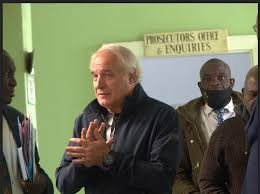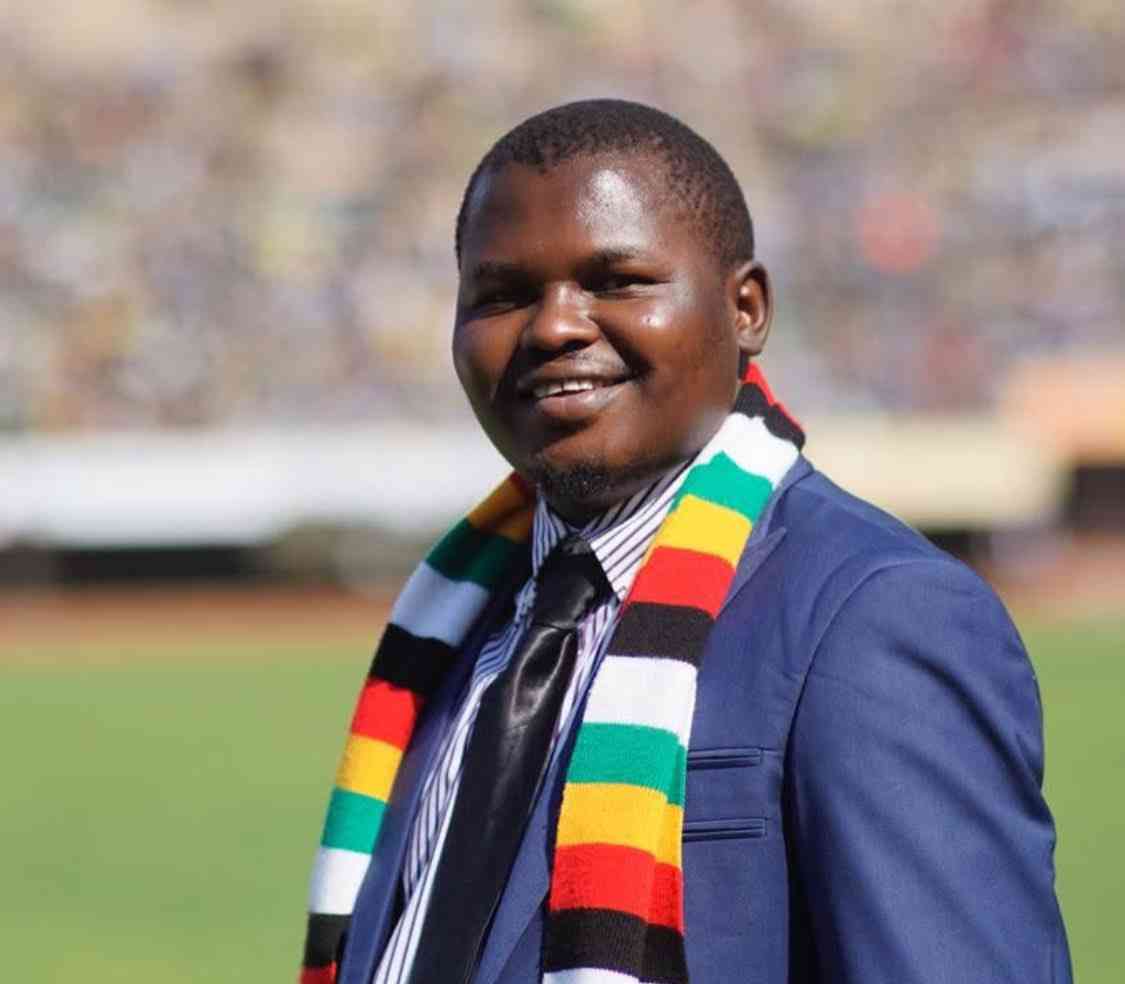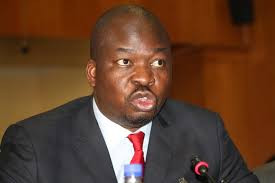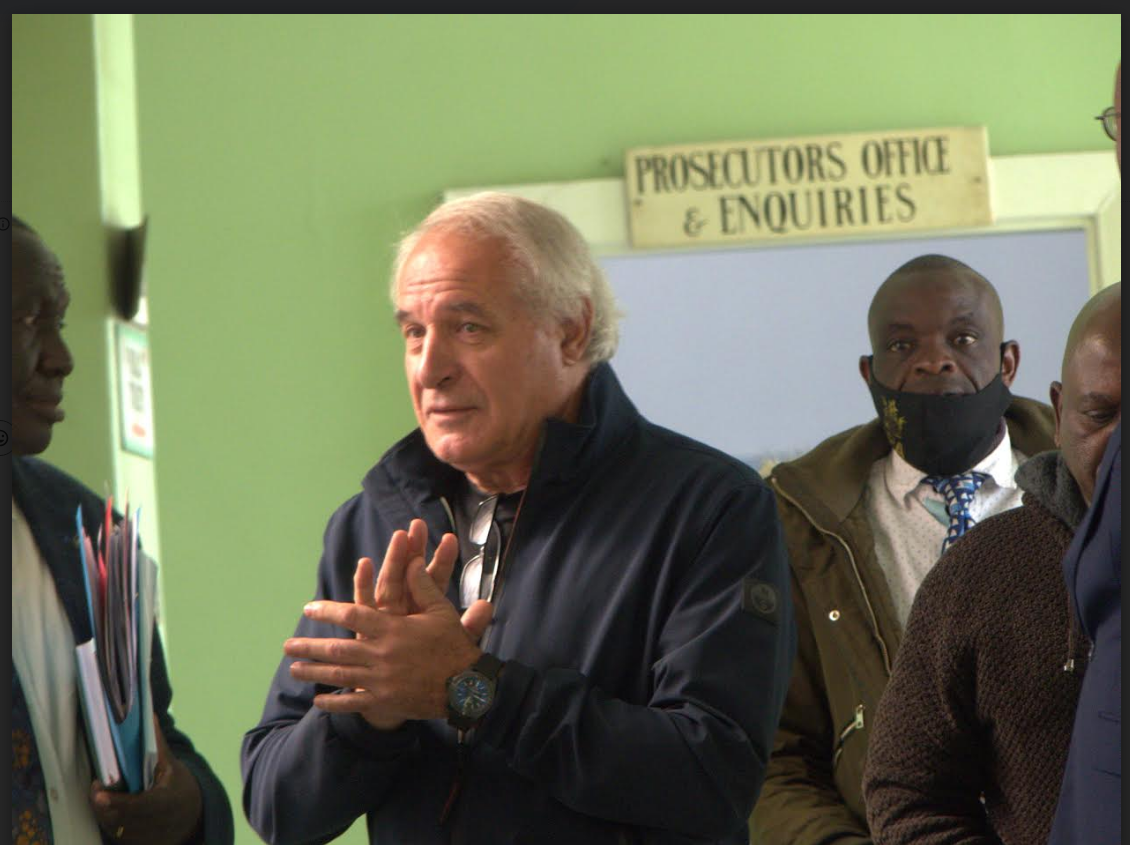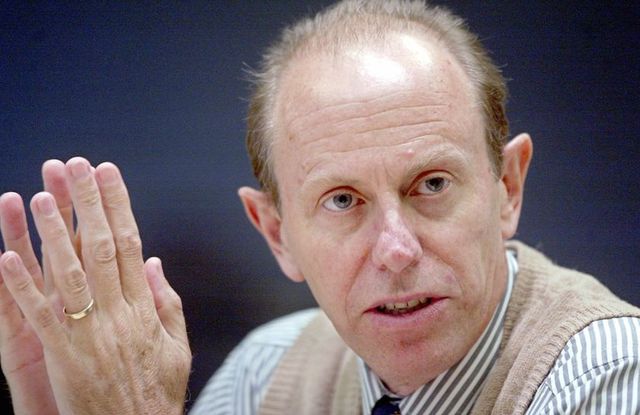
The big interview in conversation with Trevor
Former Education minister David Coltart says Zimbabwe has a disturbing culture of violence that needs to be dealt with.
Coltart, who is the new treasurer-general for the main opposition MDC, said both the opposition and ruling Zanu PF were to blame.
The veteran lawyer said the liberation war left a bitter legacy that continues to blight the country’s political landscape. Coltart (DC) was speaking in an exclusive interview with Alpha Media Holdings chairman Trevor Ncube (TN) on the platform In Conversation with Trevor.
Below are excerpts from the interview.
TN: You are a person of faith, you are a Christian. Tell me, how has your faith informed your politics?
TN: Trevor, I only became a Christian at university in 1981. Coming to faith in 1981 had a profound impact on my outlook.
The one central tenet of the Christian faith is that we are all fallen people.
- Chamisa under fire over US$120K donation
- Mavhunga puts DeMbare into Chibuku quarterfinals
- Pension funds bet on Cabora Bassa oilfields
- Councils defy govt fire tender directive
Keep Reading
We have our weaknesses, but it also helped me understand some of my weaknesses.
It helped understand where other people are coming from, a major influence on my life and certainly on my approach to politics.
The Bible is an amazing guide for morality and is a good guide to how nations should run and certainly political parties should run.
TN: So, what are David Coltart’s weaknesses?
DC: You have to have my wife to spell all of those out, but, of course, they are many.
I tend to be bullish, a bull in a china shop sometimes. When I want to get things done, I become too determined and I don’t always listen to people around me. TN: Is that a strength or weakness?
DC: One thing I say about everyone’s character is that often we find two sides of the same coin.
A person’s character’s strength is matched by the same weakness. So it can be a strength, but it can also be a weakness.
TN: Your book, The Struggle Continues, 50 Years of Tyranny, tells a journey of tyranny in Rhodesia, it tells a journey of tyranny in Zimbabwe, it also exposes violence in Zanu PF and violence in MDC. First of all, how have sales been?
DC: The sales have been amazing. My publisher said that if we sold 2 000 copies, they would be happy.
That same publisher achieved sales of 10 000 with (South African President Cyril) Ramaphosa.
My book is sitting at around 7 000, which is a drop in the ocean if you are talking about book sales in America or Europe. But in the Southern Africa context, the publishers are very pleased.
TN: Looking at the politics of the violence in Zanu PF, the violence in MDC, with that experience of research you did, what’s your takeaway, what are the lessons?
DC: Well, it’s much deeper than MDC and Zanu PF.
The reason the book is sub-titled 50 Years of Tyranny is because sadly our country has seen decades of violence that goes back to the 1960s and the Rhodesian Front and Zanu PF were both guilty for the war and for the violence that affected our country in the 1970s and tragically that has left a bitter legacy, which has continued in the 1980s and 1990s and even the MDC, which has committed itself to being a non-violent democratic party, has caught a cold by sitting too close on occasions to Zanu PF, which I believe is a fundamentally violent party.
TN: You have been accused of having been a police officer or an informer. You deal with it in the book. I want you to use this opportunity to address this issue. What’s your position regarding that allegation? DC: It’s not an allegation. It’s true. I wasn’t an informer. I was a regular member of the (British South African Police.) All young white men were conscripted. I was no different.
I went in as a 17-year-old, a few weeks before I turned 18.
At the time, my parents tried to persuade me not to, but I was part of my peer group and the peer group thought that was the right thing to do.
It’s something, which I look back on with regret. I wish that I had taken the wise counsel of my parents, but many of us did things which we regret when we were 17 or 18 year old.
I learnt a lot from it, the best thing I can say about it is the profound understanding that war is evil and propaganda can be used by old men to subvert young men for their own goals.
And so it has left me with a deep-rooted commitment to non-violence and I believe in Zimbabwe we simply have to draw the line on the sand on violence. We need to stop violence.
TN: The one thing that touched me a lot in the book is you relating the story of your family having to be moved from one place to the other, running away, escaping Zanu PF operatives, CIO, like that. Given where we are right now, you continuing to be in politics, has the situation changed at all?
DC: Personally yes. My interaction with Zanu PF goes back a long way.
I was first threatened with arrest way back in 1989 soon after the Unity Accord when I was representing ex-Zipra dissidents.
But, of course, in the early 2000s and up to 2012, I suffered four assassination attempts, two of which included my family.
Those were shocking, terrible things to go through. I think with the loss of office and the loss of elections in 2013, I did not constitute the same threat.
So that threat level lessened.
However, with my new office, we have tightened up security, we have seen recently the attempted abductions at a (Zimbabwe Council of Churches) event has been a warning to all of us that sadly it could happen again.
TN: But have you been personally threatened?
DC: I have not been personally threatened. I have not received any threats since the last attempt on my life in 2012 when I was actually a minister.
TN: You must be proud of what Doug Coltart is doing, following up dad and doing amazing work?
DC: I am very grateful for Doug and for my entire family.
We are blessed in a unique way in that four of our children are committed to Zimbabwe.
We have three of our children in Zimbabwe with our second son coming back to Zimbabwe next year.
They, like me, have a deep-rooted passion for the country, deep-rooted faith in the future of this country.
I often say unfortunately, my generation because of the war and white supremacy and because of discrimination and all the hurt that was brought by my generation, there is a limit to what my generation could do.
I say to my children, it’s your generation that is going to deliver the Zimbabwe that we all pray for.
TN: Congratulations on the MDC congress. Did it go according to expectations?
DC: I was amazed. I had been out of the mainstream MDC for quite some time, going back to 2005.
So I didn’t understand the mainstream MDC. The MDC congress at Gweru was heartwarming.
We had over 4 500 delegates and these were poor people generally.
They came in buses and not fancy cars and many of them slept at Mkoba Stadium. You know how cold Gweru can get.
I was born in Gweru, so I know.
The party was broke, so we couldn’t provide food, yet the resilience, the determination of those delegates was inspiring to me, quite encouraging.
TN: The other story is about a group of political leaders who had left the MDC in a big huff managed to find themselves under the same tent. How was that done? What was the overriding interest that brought these people back again after having fought so much in public? DC: I think Morgan Tsvangirai started the process. Prior to his death, I had constructive interaction with Morgan Tsvangirai.
I think he realised after 2013 that unless he re-united the party, there won’t be any hope of winning an election.
So he definitely started the process, but, of course, he was very ill and didn’t have the energy to see the process through.
Nelson Chamisa’s strength is that immediately when he assumed office he reached out to people.
The day after he had been somewhat controversially elected as leader, he phoned and he said we have worked well together, David, I want to reunite the party.
He has been exceptionally pro-active in reaching out to people like Welshman Ncube and others.
So, he deserves a lot of credit for the reunification of the original MDC.
TN: You said his somewhat controversial election; do you want to expand on that?
DC: It was controversial to the extent that it was disputed. It was disputed by Thokozani Khupe. I don’t really blame Nelson Chamisa for that.
I think the problem was that the party had not amended the constitution, it was a mess.
I think it was exacerbated by the fact that Morgan was so ill and terminal and literally did not have the energy to sort out that mess and that’s what I mean by controversial.
I think that now it has been resolved to the extent that Thoko Khupe has had her own congress.
We now had our own congress where Nelson Chamisa was elected overwhelmingly. So, it’s now history.
TN: You are giving lots of credit to Chamisa for the role in bringing people together, what about those other politicians that went away, was it the Chamisa factor? Was it something that made them want to come back?
DC: We have been in the trenches for two decades, Welshman Ncube, Tendai Biti and Nelson Chamisa.
We have been together in this struggle. The split in 2005 was a gift to Robert Mugabe. It was a gift to Zanu PF.
We looked back and recognised that we really needed to work out our differences and that is a common understanding. Divided we will never be able to constitute a force against Zanu pf.
TN: So there is now unity in the party?
DC: There is unity among those who participated in that congress. Obviously there are still divisions with some of our old colleagues such as Thokozani Khupe.
TN: Given the clearly immense sacrifices made by senior members of MDC to come together to bring a united MDC, could the same effort not be applied in bringing national dialogue in this country.
DC: What has happened with the MDC post-congress is that some people like myself, Welshman Ncube and Tendai Biti have come back into the mainstream MDC.
If you look, for example, at Welshman Ncube’s history you will see that he is a moderate person.
He has always been tempered in his language and he is always committed to constitutionalism, he respects the rule of law and a peaceful process.
I stand for the same things.
So, what the public needs to understand is that there is a consensus that we are committed to stabilising the country and to take the country through meaningful dialogue.
What we believe though is that the playing field is uneven at present.
We think — and I think justifiably — there are two dominant political parties in the country and two dominant political leaders, Nelson Chamisa and Emmerson Mnangagwa, that is borne out by the election results.
That’s not to say other players can’t have a seat at the table, but in reality they are not the powerful political players, they don’t deliver the massive constituencies.
So the dialogue has to be primarily between those two parties and two leaders. But it cannot be a walk-down. Both of the protagonists need a neutral interlocutor who can ensure that there is fair play. A neutral referee or umpire.
TN: So you believe there is scope for dialogue? DC: There has to be scope, Trevor. When we look at the chaos the country is facing and more than that, the suffering of people.
So when poor people are battling to find bread, there is an obligation on political leaders to put aside their personal preferences and ambitions with the best interests of the nation.
TN: What will it take for us to get there?
DC: First of all, it takes genuineness. If leaders are involved in smoke and mirror games and are not genuinely interested in establishing the country, respecting the constitution, it’s very difficult for dialogue to take place.
Secondly, everyone has to be committed to constitutionalism, to respecting the constitution and implementing the constitution in letter and spirit.
There has to be mutual respect.
One of the things that is bogging the prospect of dialogue is the issue of legitimacy. Nelson Chamisa and the rest of us contest that election result.
TN: Even after the Constitutional Court made its ruling?
DC: As a lawyer, I have major problems regarding the process employed by the Constitutional Court. Obviously I am biased.
TN: How do we deal with the issue of legitimacy so that it is not a stumbling block to dialogue?
DC: I think both leaders have to park that issue. In other words, Emmerson Mnangagwa mustn’t be insisting that he be recognised .
Nelson Chamisa must say ok, I dispute that, but I am gonna park this issue for national interest so that we can get to the substantive issue.
Because if both stand on their respective positions, it’s gonna be difficult for dialogue to pursue.

